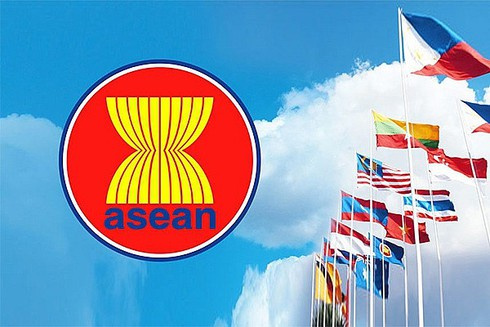By Voon Miaw Ping
KUALA LUMPUR, July 22 (NNN-Bernama) — ASEAN and Russia on July 6 held a Special ASEAN-Russia Ministerial meeting in Jakarta, Indonesia, a testament to Russia’s growing interests in the dynamism of the Southeast Asian region.
The meeting held to mark the 30 years of ASEAN-Russia relations and 25 years of Russia’s dialogue partnership with ASEAN was co-chaired by Indonesian Foreign Minister Retno Marsudi and her Russian counterpart Sergey Lavrov.
The meeting also welcomed the conclusion of the negotiation to implement the ASEAN-Russia Strategic Plan (2021-2025) and to implement the concept paper on ASEAN-Russia consultation of high-representative for security issues.
An analyst notes Russia’s greater strategic presence in the region would help ASEAN in moving away from the China-United States (US) strategic binaries.
“The mainstream discourse is often so narrowly focused on China and the US that we tend to overlook the contributions made by other major stakeholders – Japan, Russia, and India,” Head of European Studies at the Asia-Europe Institute, Universiti Malaya (UM), Rahul Mishra told Bernama.
Mishra, who is also an associate at UM’s Centre for ASEAN Regionalism, says this showed that Russia was willing to play by ASEAN’s rules adding that Russia’s commitment to ASEAN centrality inspires great confidence in the latter.
“ASEAN is fully aware that it cannot stop the great power competition in the region, what it can do, however, is to make sure that the great power rivalry is blunted by participation of more and more stakeholders, and is institutionally balanced in such a way that it does not become a ‘zero-sum game’.
“This, I believe, is the most important reason why ASEAN is always willing to engage with as many stakeholders as possible.
“ASEAN centrality should not be tethered by the US-China rivalry,” he said, adding that Russia’s strong partnership with important Indo-Pacific countries such as Vietnam and India, where both are also close to the US, make the Russian positioning in the Indo-Pacific more complex.
“Russia would not like to lose its time-tested friends – Vietnam and India – for either China or the US,” he said.
Senior lecturer in Politics and International Relations at Universiti Utara Malaysia (UUM) Prof Dr Mohd Azizuddin Mohd Sani views Russia’s involvement in the region more in terms of trade. Russia is currently more interested in strengthening and expanding trade relations with ASEAN, he said.
ASEAN-Russia bilateral trade remains very low and awareness of the huge potential of the ASEAN region has prompted Russia to take steps to expand trade opportunities between them.
ASEAN, with a combined population of over 661.5 million and a collective GDP of US$3.2 trillion, is one of the fast-growing economies. It is currently ranked fifth-largest economy and the bloc is projected to be fourth-largest economy in the world by 2030.
ASEAN-Russia two-way trade, meanwhile, was modest with only US$18.2 billion recorded in 2019 while Russian foreign direct investment (FDI) in ASEAN stood at US$45 million, about 0.3 per cent from the total US$160.6 billion the bloc received in 2019.
“In terms of trade, Russia is far behind. That is why it sees the need to ‘catch up’ with countries that trade with ASEAN and also capture a wider and potential market with ASEAN.
“Apart from the petroleum and energy sectors, Russia also wants to widely market weapons and military products,” he said when contacted by Bernama.
From the geo-political aspect, Mohd Azizzudin said although Russia recognised the importance of the ASEAN region, but it was not the focus of Russia’s foreign policy which gives priority to Europe.
“Russia also does not want to get involved in the race between US and China to make their presence felt in the ASEAN region. Russia is trying to give a positive perception to ASEAN that it wants to promote trade relations,” he said.
Russia had established relations with ASEAN in 1991. In 1996 the relation was subsequently elevated to Dialogue Partner and later to the strategic level in November 2018.
Russia has accredited its ambassador to ASEAN since 2009 and in August 2017, established its diplomatic Mission to ASEAN based in Jakarta.
ASEAN, established in 1967, comprises 10 member states, namely, Brunei, Cambodia, Indonesia, Laos, Malaysia, Myanmar, the Philippines, Singapore, Thailand and Vietnam.
— NNN-BERNAMA




